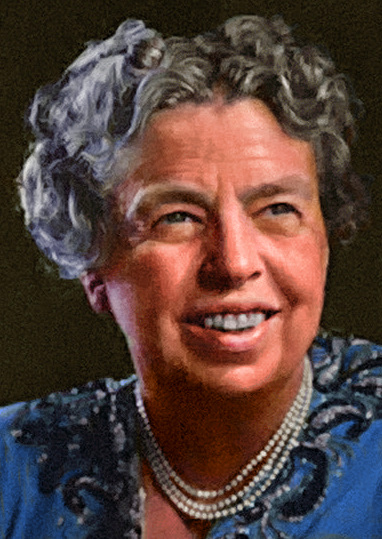January 13, 1945
Washington – (Friday)
I spent all day yesterday – morning, afternoon and evening – at the meeting of the Southern Education Foundation, Inc. This is a group under which the Jeanes teachers work, and there is no group of teachers for whom I have a higher regard.
The Jeanes teachers rarely confine themselves to one school. They are concerned with the school and the community. Trained in home economics, they help the women in the home to raise the standard of living. Naturally, they have to know about the techniques of teaching and the methods that are considered best at the present time. But their conception of education is that the life of the whole community is affected by it, and that good education is not confined to the schoolroom, but includes religion, recreation, the home and the farm. Their work is in rural communities, and one lone Jeanes teacher in the Virgin Islands has been doing a yeoman’s job.
Their concern, of course, is Negro education in the South, but it is of value to the whole community, since no part of it can suffer without the whole community suffering. Similarly, if any part of the community climbs upward it must push or drag the rest of the community along.
In the evening, the Rev. Mr. C. M. Gallop gave a talk on the founder of the Slater Fund. John Slater, a resident of Norwich, Connecticut, not only left his mark upon the New England town where he lived, but Negro people all through the South are still profiting from his interest.
I forgot to tell you a couple of days ago that I had a visit from Staff Sgt. Jack Kreismer, creator of “Judy the Jeep Girl,” who has been pronounced the most active paper doll on the home front. She, too, came to call and I became very much interested in all of her various activities. If you watch for her, you will know all the things that we can undertake to help the war effort. Judy started on the West Coast, where she “sold” bonds, and travelled all the way East by jeep. At present stationed in the nation’s capital, she is working under the War Finance Division of the Treasury Department, and is frequently drafted for other worthy causes. You will find her urging on blood donors at Red Cross centers, recruiting trained nurses for the armed services, and nurses’ aides for the hospitals.
Sgt. Kreismer told me Judy had confided to him that during the next two weeks her greatest effort will be focused on the Mile of Dimes campaign. She will help to open the drive on Saturday, January 13, and her slogan is: “Everyone must help. We must stretch that mile longer than ever this year, and then the aid to human suffering can be stretched that much further.”
